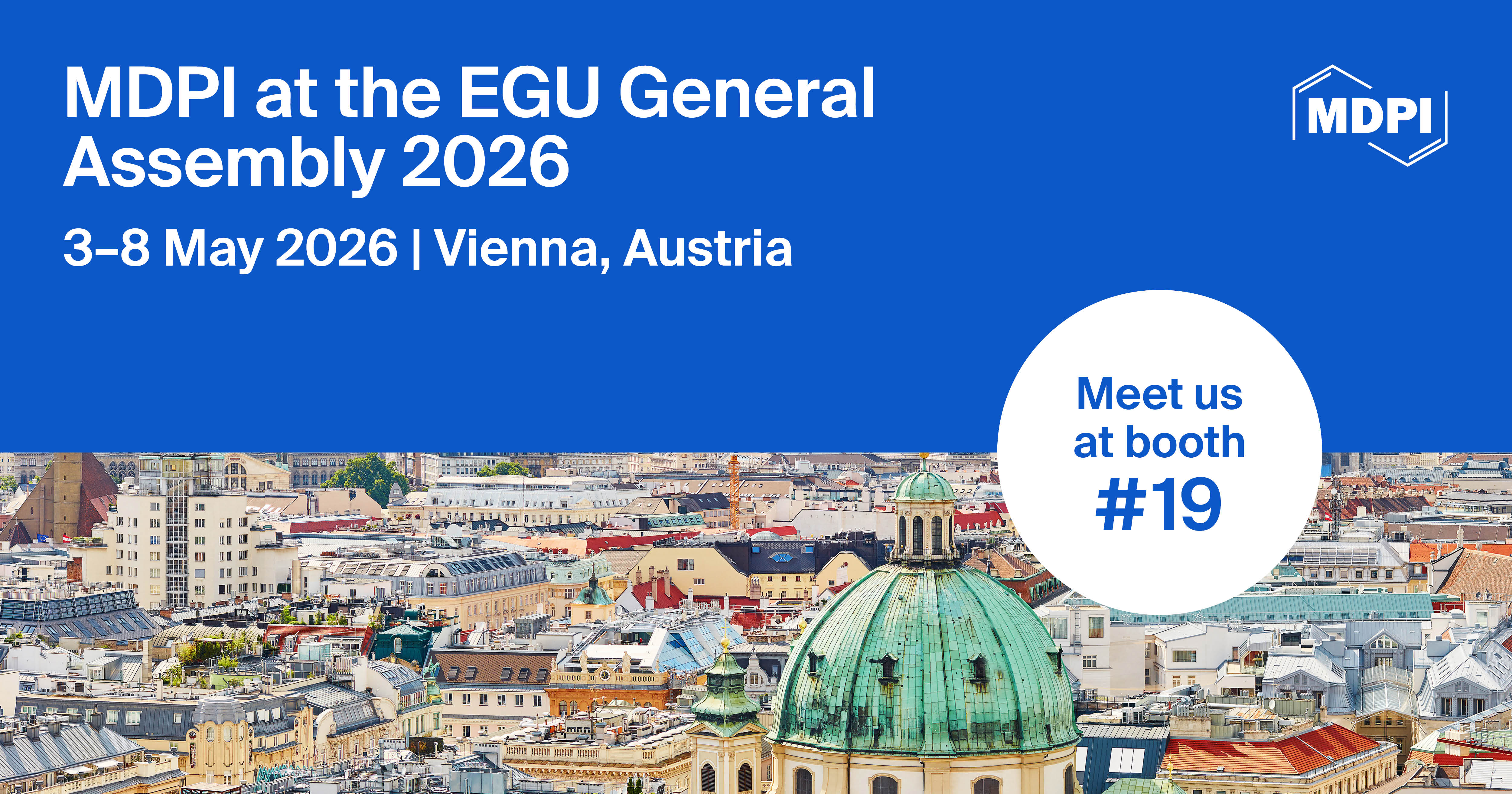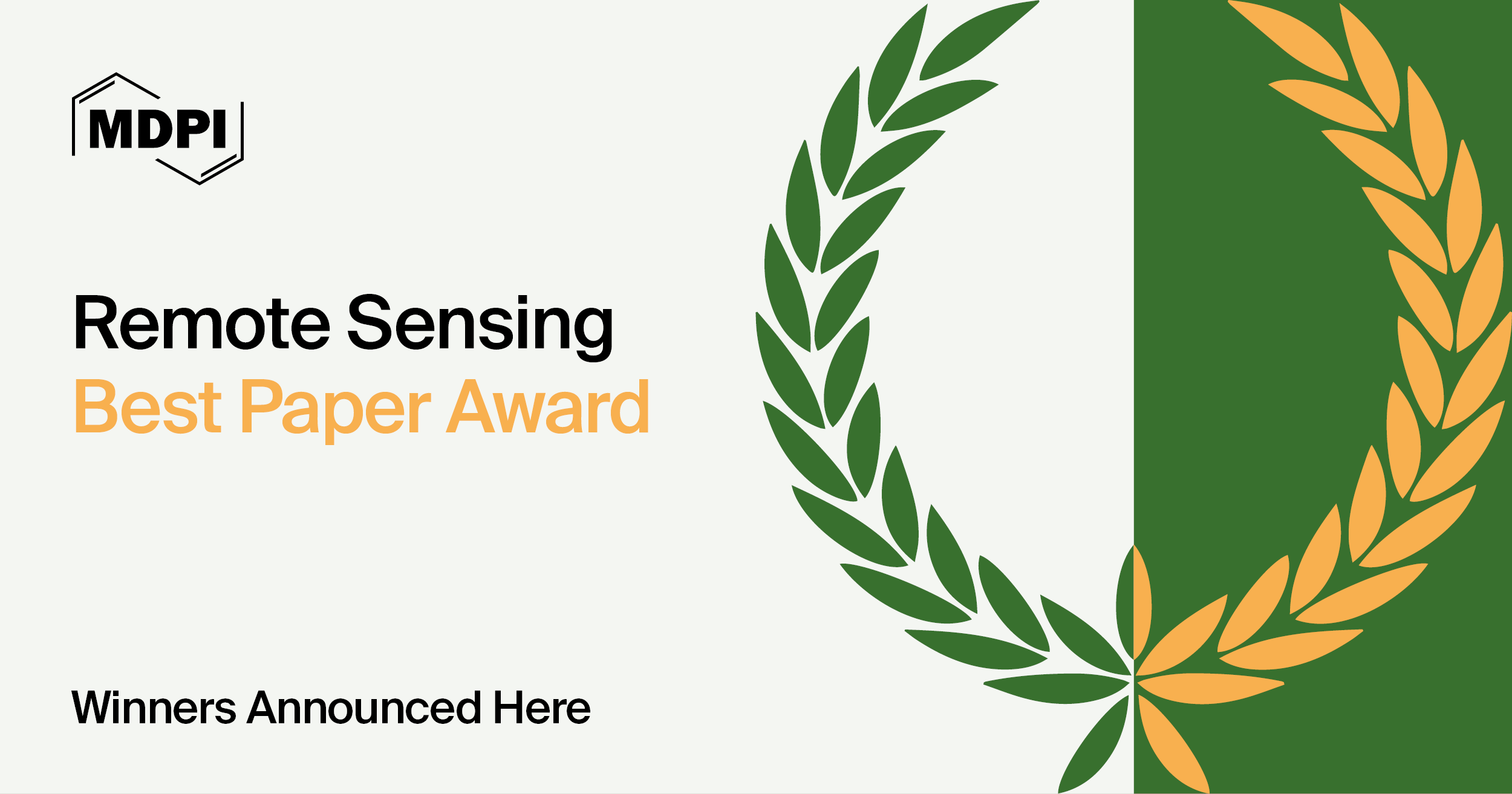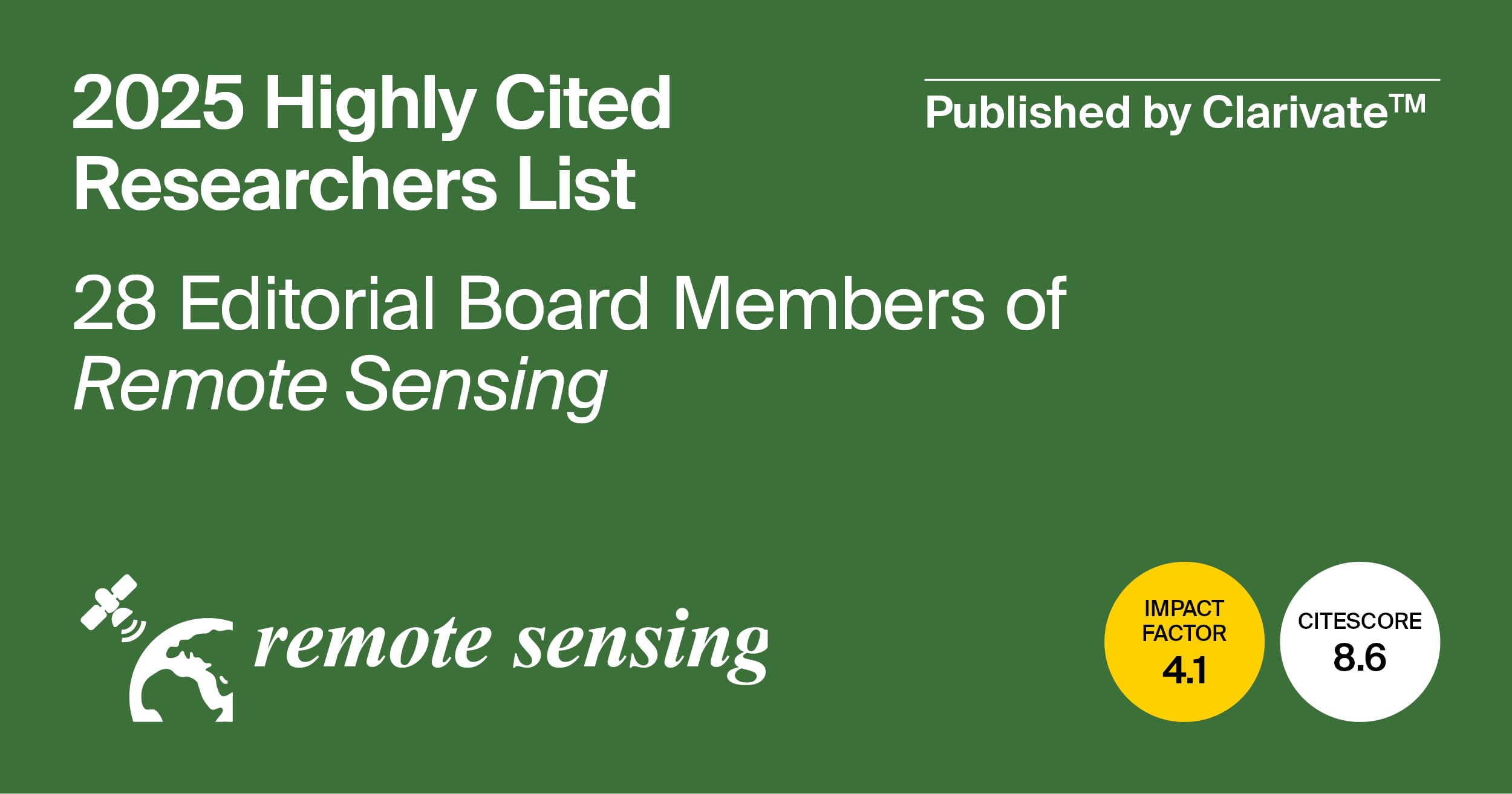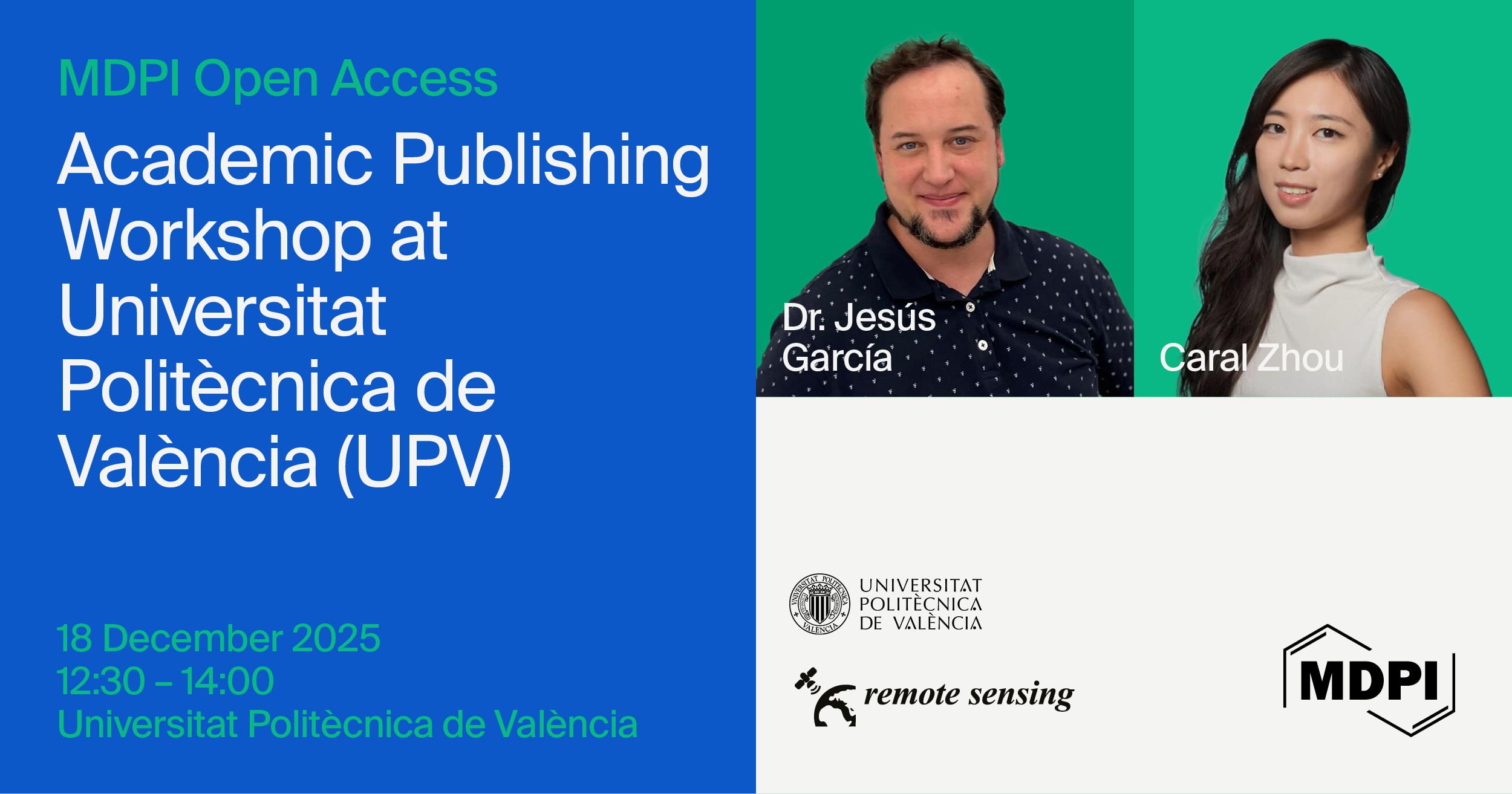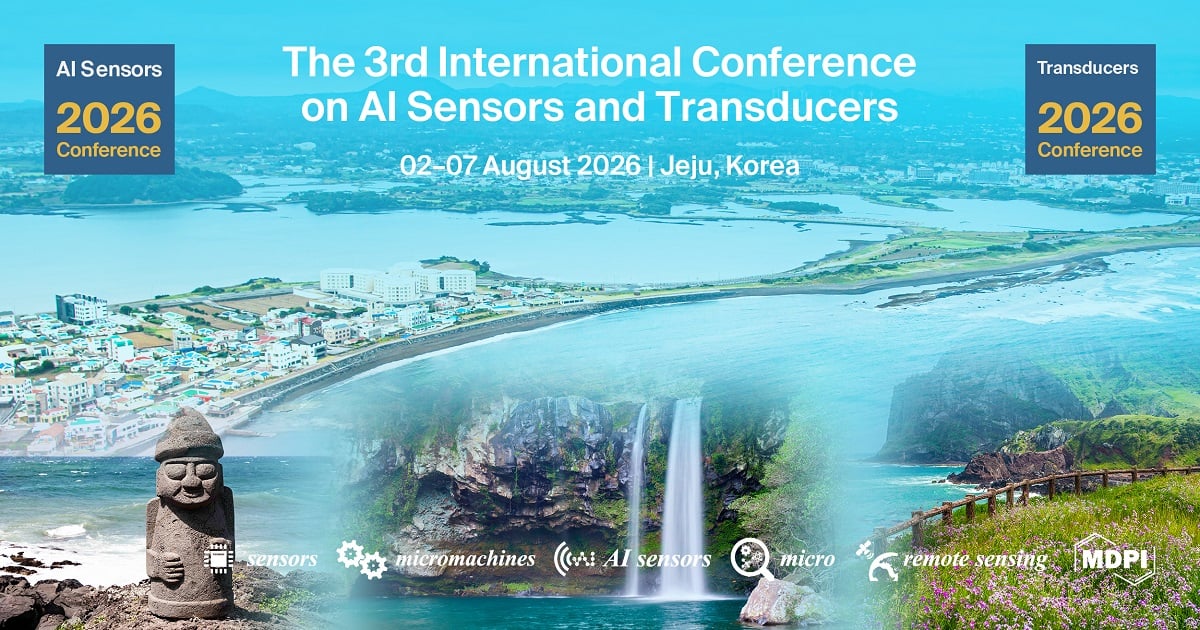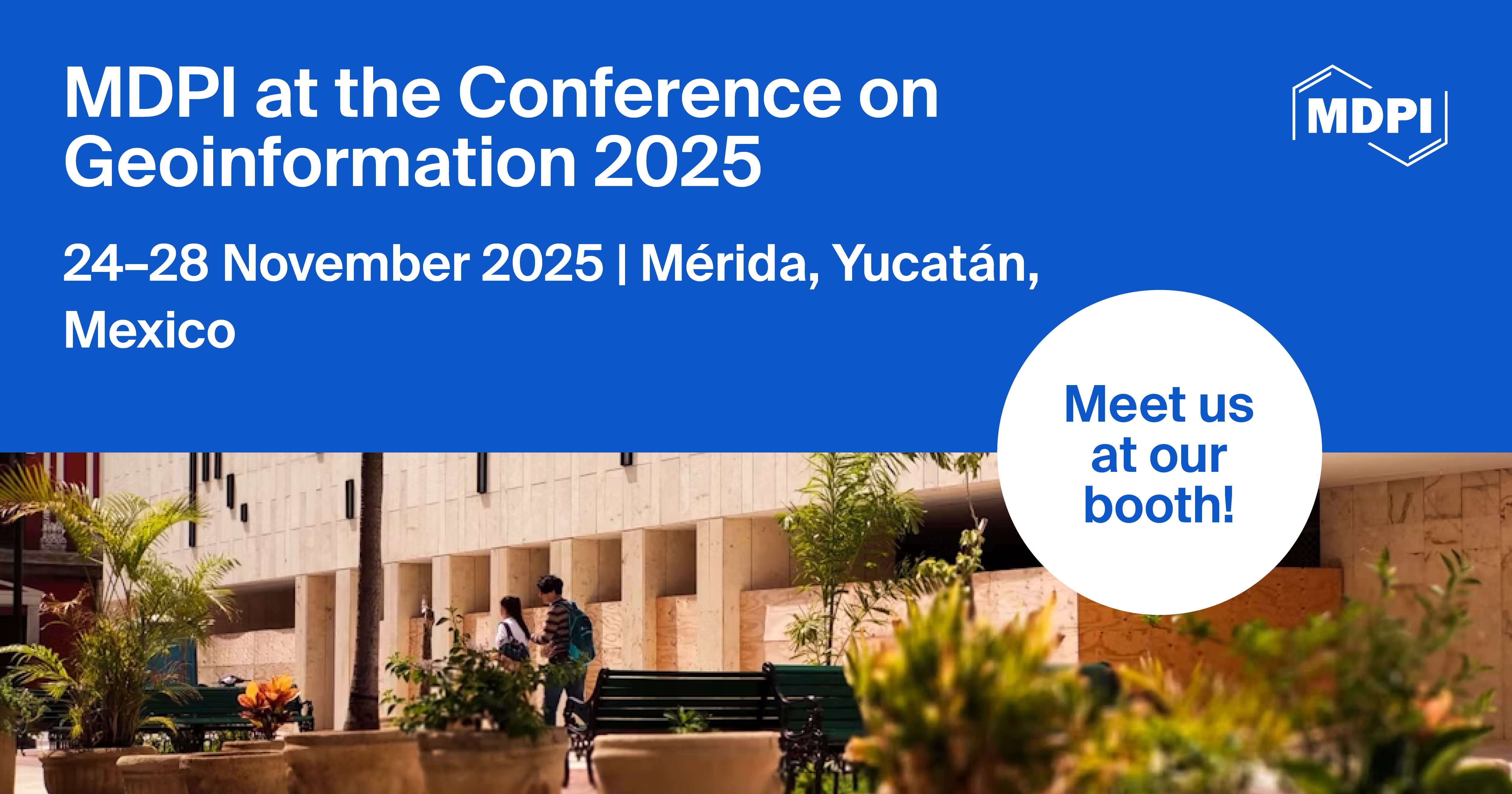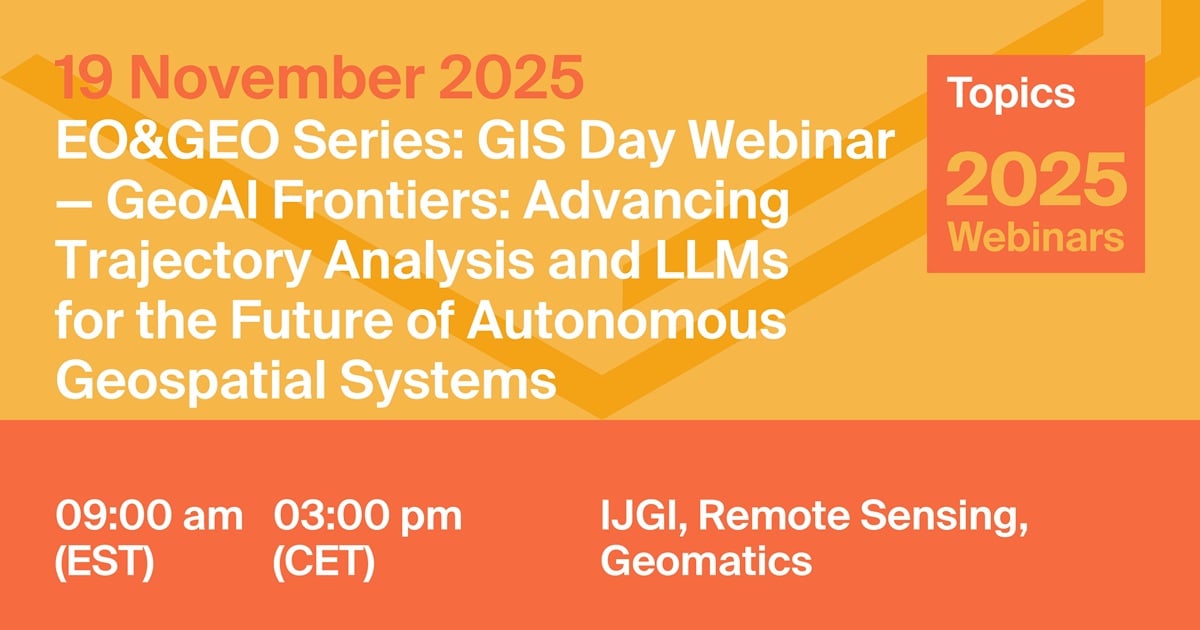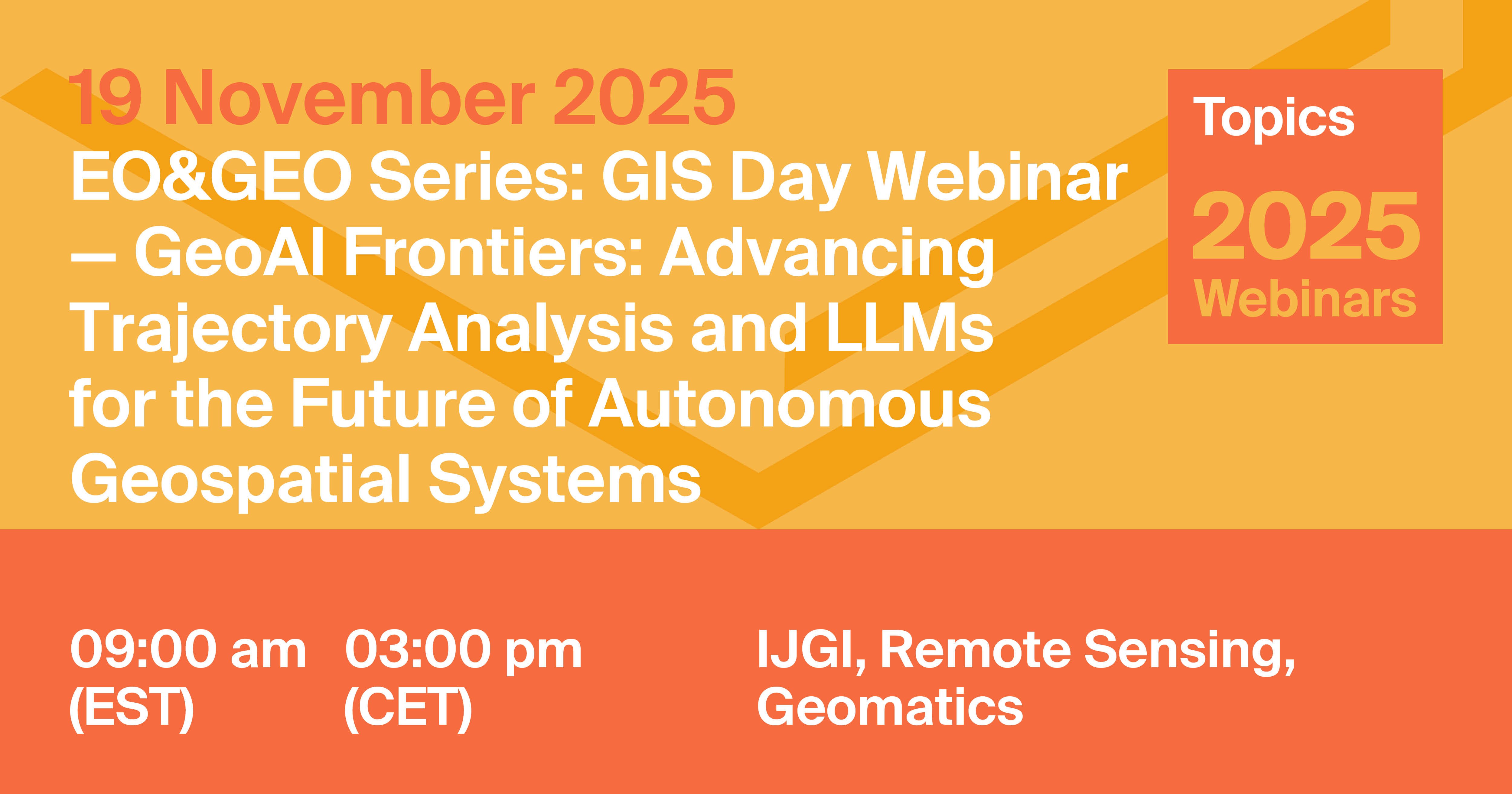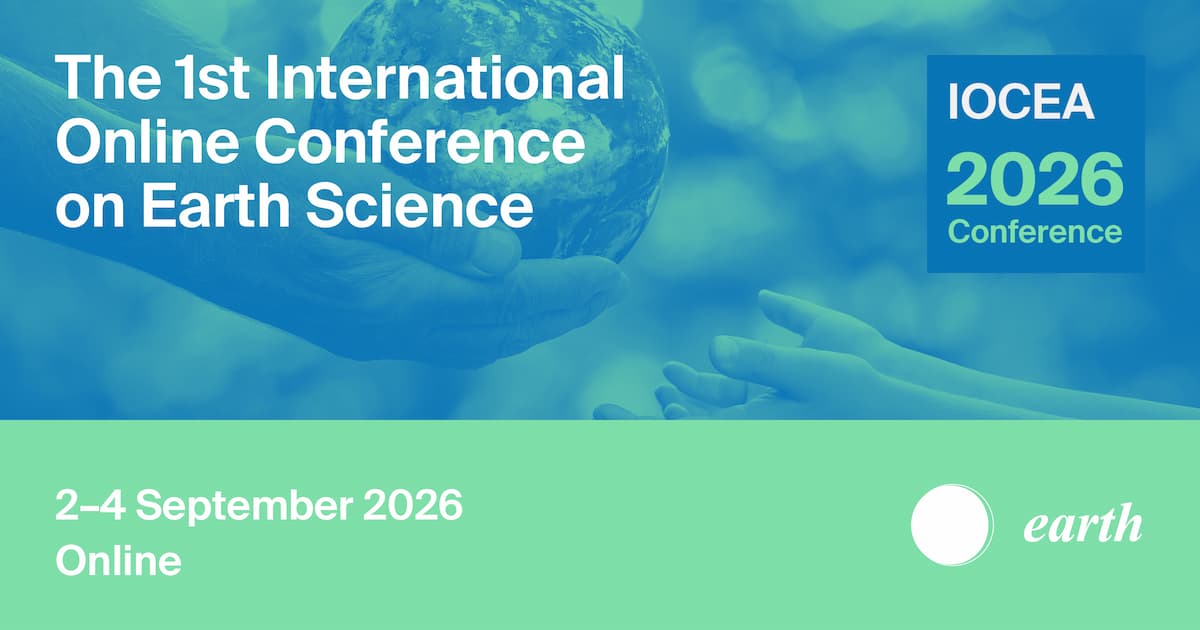- 4.1Impact Factor
- 8.6CiteScore
- 25 daysTime to First Decision
News & Conferences
Latest News & Announcements
Latest Conferences
Propose a Conference Collaboration
Promote and publicise your upcoming conference with MDPI.
All News & Conferences
News & Announcements
Meet Us at the EGU General Assembly 2026, 3–8 May 2026, Vienna, Austria
6 January 2026
News & Announcements
Remote Sensing Best Paper Award—Winners Announced
26 December 2025
News & Announcements
Editorial Board Members from Remote Sensing Featured in the Highly Cited Researchers 2025 List Published by Clarivate
13 December 2025
News & Announcements
International Mountain Day—“Glaciers Matter for Water, Food and Livelihoods in Mountains and Beyond”, 11 December 2025
11 December 2025
News & Announcements
Article Layout and Template Revised for Future Volumes
11 December 2025
News & Announcements
MDPI Open Science Insights: Academic Publishing Workshop at the Universitat Politècnica de València (UPV), 18 December 2025
5 December 2025
2 - 7 August 2026
News & Announcements
Meet Us at the Conference on Geoinformation 2025, 24–28 November 2025, Mérida, Yucatán, Mexico
18 November 2025
MDPI Conference
Meet Us Virtually at the 1st International Online Conference on Earth Science, 2–4 September 2026
2 - 4 September 2026
of 34


